News & Events
The future of Unisa embrace their #Heritage
The month of September is known as #HeritageMonth to South Africans. The 2020 national theme is “Celebrating South Africa’s living human treasures”. The month is seen as a period to celebrate and reflect on culture. Significant as the month is, it is evident that anyone can live their heritage every day. While every person has different ways of expressing her or his heritage, Unisa students share their views on what heritage means to them.

As an African, heritage is about my origins, where I come from, and my inheritance from my family elders, the community and the society at large. I embrace, among others, my values, culture, language, lifestyle and monuments. I have three names in three different languages. That says a lot about my inheritance, and I love it. I live by the aforementioned inheritances. They make me who I am and what I am. They are my roots; they remind me where I come from as it is important to never forget that, regardless of the present and the future. However, we live in a very diverse country, so I learn about different cultures and languages every day. This learning process is very close to my heart as I value communication more than anything.
Celebrating heritage month to me is about appreciating where we come from and what we have become. It is also about celebrating each other and continuing to learn about each other’s heritage – it is fun! We can celebrate by dressing up in our traditional attire, playing our traditional music or even singing traditional songs. Most of us have lost touch with playing indigenous games. This is the perfect time to do that and take a trip down memory lane.
Hold on very tight to your heritage and your roots. It is best to know them and having the choice of not practising them rather than not knowing them at all.
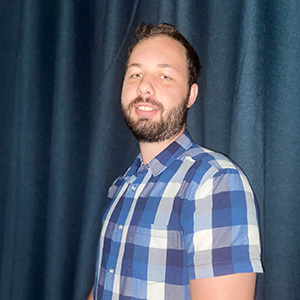
Heritage to me is where we come from, our traditions and beliefs. To me this means knowing where my ancestors came from and the traditions they followed. It is about celebrating our traditions. In South Africa, we live in a society with different backgrounds and traditions, and we as South Africans have combined these traditions to make our own heritage.
My idea of celebrating heritage month is to look back at where my ancestors came from, to braai with family and to eat melktert, to learn our traditions from the elders of the family and to experience the way they grew up.
Live your heritage and learn about all the different traditions in South Africa. We must create a new heritage to show the future generation what we can do as a nation. I think we, as a nation, can overcome one of the biggest threats ever in history, the Covid-19 pandemic, and need to make this part of our heritage.
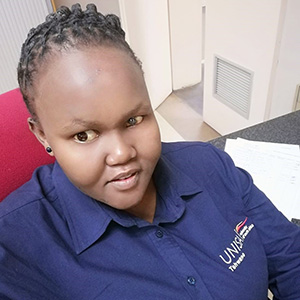
The Unisa Tshwane Students with Disabilities Forum strongly believes in the celebration and remembrance of our heritage, like our diverse cultures and languages. We take pride in wearing our various African traditional attire, and enjoying our African dishes prepared just the way we love it.
While we socialise as a united forum, we also realise that we are all equal and special persons, and no one should belittle or discredit another’s heritage and culture, nor their language of origin, because in doing so we will be endangering the true spirit of the love of our diverse heritage and culture as a rainbow nation. As a generational legacy, celebrating our diverse heritage and cultures also gives an individual a true sense of his/her nature of true Africanism and a clear identification of his/her own place of fundamental origin.
The importance of African renaissance is thus for Africans to continue with the actual process of the rebirth of Africa, so as to guard against extinguishing the value of our hard-earned great inheritance of being free to be Africans in an African Continent.
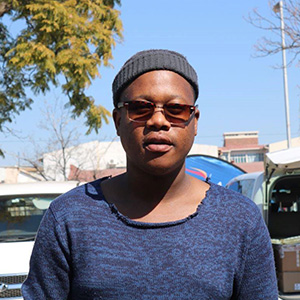
What heritage means to me is embracing one’s origins. It is, so to speak, a hand-down from the past as far as tradition is concerned. I believe in the popular saying “To know where you are going, you have to know where you come from”. This quote has been interpreted in various ways; however, the message and its magnitude remain.
History and modern research prove that we are still a traditional, culture-driven group to whom our heritage as black people is what defines us and makes us who we are. South Africa’s population is made up of many cultural groups and it is on a celebration like Heritage Day that we are reminded that what makes our country so beautiful is that it is colourful (diverse). Let us celebrate it beyond the 24th of September.
We need to embrace our identity, and we must celebrate and be proud of it. One thing that makes us unique is our individualism, and if we live to try and fit into a system that is not us, then we will live forever trying to be who we are not.
To know and understand the journey we ought to take, we need to know where the point of departure is. And when you get to a certain destination, do not let go of your identity – whoever is going to take over, needs to start where identity is the driver to another destination. When we introspect, let us not look for who we want to see, but who we really are.
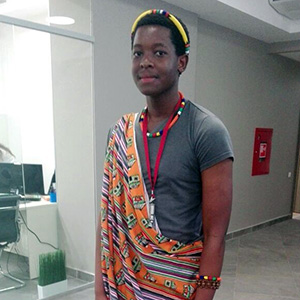
Heritage, to me, signifies the identity, acknowledgement, appreciation and conscious awareness of the fact that I am the embodiment of many others before me, and that what I am is defined by their lives as much as it is defined by my own personal journey. Heritage thus enables me, in all I aim to achieve, to bear in mind that I am of a people and that my success cannot be isolated to my journey alone, but is in some form entangled to the journey of my people of then and those of tomorrow.
It is about reflection and syncing with one’s origins. My ideal celebration of heritage month is simply through dedicating time to learn from the elders we still have, making a conscious effort to source information about history, faith, culture and cultural practice. I believe this is an important part of succession, moreover in a time where the youth is explicitly plugged into the huge pool of global pop culture, which often distorts our African cultural perceptions, courtesy of the internet; and also where part of our cultures are not well documented.
Celebration by knowledge accumulation, to me, therefore ensures that I equip myself for my future role as an elder so that I am able to teach the next generation about the fundamentals of who they are as people, where they come from and, also, what it means to be an African.
Having had the privilege of visiting some of the world’s most developed countries and having seen people who look like many of my relatives and friends of colour; speaking and walking in the native culture of their respective foreign lands, which they now, by consequence of our troubled African history, call home, has prompted a sincere and honest appreciation for what we are as African people. In all of one’s success, professional or otherwise, the fabric of who one is as an African should never be undermined nor underappreciated; but should continually be embraced. The appreciation of our heritage is not only the celebration of our history, but that of our beginning and of our becoming.
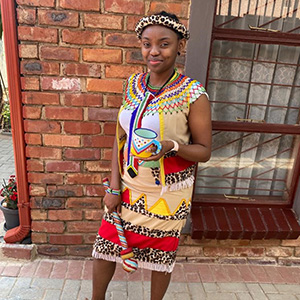
When I think of Heritage Day, the first thing that comes to my mind is my father and mother. As kids we were not allowed to speak English at home, and conversed exclusively in IsiZulu. My late father was very strict when it comes to speaking the home language in the house. Although this was the rule at home, it was not about undermining or disrespecting other languages. My parents’ motive was to make sure we learn our home language and master it.
As students, it is okay to speak English. In fact, we use the English language in almost everything. If asked to speak our home languages for an hour without borrowing words from a different language, it would feel impossible to express oneself. It is not impossible to maintain your language. I challenge students and everyone to try speaking their language for an hour and see how it goes.
Let us not forget where we come from, our cultures and home languages. My father used to say, “Being educated does not mean forgetting your home language”. That is why it was not a problem to learn in English, but it was a problem when I spoke English at home.
I hasten to stress that my message is not intended to discourage the use of the English language. Remember, South Africa has 11 official languages to embrace, including sign language. Let us know and master our languages.
#HeritageMonth2020
#MyHeritageYourHeritage
* By Nancy Legodi, Acting Journalist, Department of Institutional Advancement
Publish date: 2020/09/25
